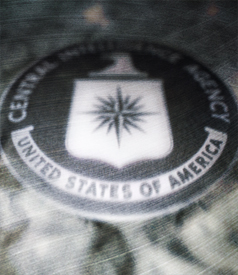President Harry S. Truman created the Central Intelligence Agency in 1947 to ensure that the policy community would have access to independent intelligence analysis that was free of the policy advocacy of the Department of State and the Department of Defense. The CIA’s most important analytic mission was the production of national intelligence estimates (NIEs) and assessments that tracked significant political and military developments and provided premonitory intelligence on looming threats and confrontations.
One gauge for measuring the success of the CIA’s intelligence analysis is to measure the Agency’s performance before and during four controversial wars: Korea, Vietnam, Iraq, and Afghanistan. Three presidents (Truman, Eisenhower, and Johnson) did not interfere with the production of intelligence analysis in these crises; two presidents (Nixon and George W. Bush) tried to slant intelligence analysis; and now President Obama is fighting a war without benefit of the estimative capabilities of the intelligence community.
President Truman wanted sensitive intelligence with the bark on, and that is what he and President Dwight Eisenhower got from the CIA during the Korean War. Unfortunately, the CIA made a series of fundamental errors in its judgments, including failures to understand the policies and actions of North Korean leader Kim Il Sung, ascertain the nature of Kim’s dialogue with the Soviets and the Chinese, provide strategic warning of Kim’s decision to go to war, and anticipate China’s entry into the war.
As a result of these failures, President Truman named the first civilian director of the CIA – Allen Dulles – and supported the creation of an elite Office of National Estimates (ONE) under Harvard Professor William Langer, a senior Office of Strategic Services (OSS) analyst during World War II. ONE consisted of two offices, an upper tier known as the Board of National Estimates (BNE), composed of senior government and academic officials, and an estimates staff composed of intelligence professionals who drafted NIE’s. ONE quickly became the focal point of the CIA’s intelligence analysis until it was abolished in 1973 by CIA director James Schlesinger, who shared the Nixon administration’s desire to end ONE’s independence and its dominance within the intelligence community.
The CIA and ONE did some of their best work before and during the Vietnam War when they told the Johnson and Nixon administrations that the South Vietnamese government was corrupt and would not be a capable ally in the war against the North and that the strategic bombing campaign would fail. The CIA also prepared excellent analysis on North Vietnam’s order of battle, which was far more accurate than the politicized intelligence coming from the Pentagon. While Johnson and Nixon did not try to tailor the intelligence analysis of the CIA, they did something worse. They ignored the intelligence that could have prevented the US disaster in Vietnam – and they were contemptuous of the analysts who produced these assessments. Eventually, President Nixon forced the resignation of CIA director Richard Helms for allowing the production of these unwelcome NIE’s and appointed Schlesinger as CIA director, hoping to stop the flow of bad news on Vietnam and remove the “existing regime of anti-Nixon Georgetown dilettantes and free-range liberals.”
The Iraq war, of course, brought forth the worst in CIA tailoring of intelligence, particularly in the run-up to the war. The CIA cherry-picked the evidence to support the Bush administration’s case for war and thoroughly corrupted the intelligence process to convince Congress and the American people of the need for war. In October 2002, the CIA produced a phony intelligence assessment on Iraqi weapons of mass destruction (WMD), followed by a declassified white paper on WMD which was nothing less than an exercise in policy advocacy and thus a violation of the CIA’s charter. The efforts of Vice President Dick Cheney and his chief of staff, Lewis Libby, to tailor CIA intelligence have been well documented. The failure to tell truth to power in the case of the Iraq war is the most serious intelligence failure in U.S. history.
The Obama administration’s decision-making on the Afghan War has been both puzzling and disappointing. Obama campaigned on the basis of greater openness and transparency in government as well as a willingness to consult diverse viewpoints. His decision-making on Afghanistan has not reflected those promises, a shortcoming particularly apparent in light of his failure to commission NIE’s on Afghanistan in 2009 before the decisions were made to significantly expand U.S. forces there. This is in stark contrast to the Vietnam War, when there was a strong debate within the intelligence community on Southeast Asia and the White House and the National Security Council were well apprised of the discussion.
An intelligence assessment could help to answer questions on crucial points regarding the course of the Afghan War, including the relations between the Taliban and Al Qaeda, the success of a counterinsurgency campaign without the benefit of a stable indigenous government, the unwillingness of Pakistan to degrade and disrupt Taliban efforts to launch military or terrorist attacks, and the uncertainty of stabilizing governments in Afghanistan and Pakistan. Either President Obama does not believe that the CIA and the intelligence community have the resources to provide useful insight into these matters, or he realizes that the findings of such an assessment would not be helpful to the policy he has already decided to pursue.
Media that fights fascism
Truthout is funded almost entirely by readers — that’s why we can speak truth to power and cut against the mainstream narrative. But independent journalists at Truthout face mounting political repression under Trump.
We rely on your support to survive McCarthyist censorship. Please make a tax-deductible one-time or monthly donation.
